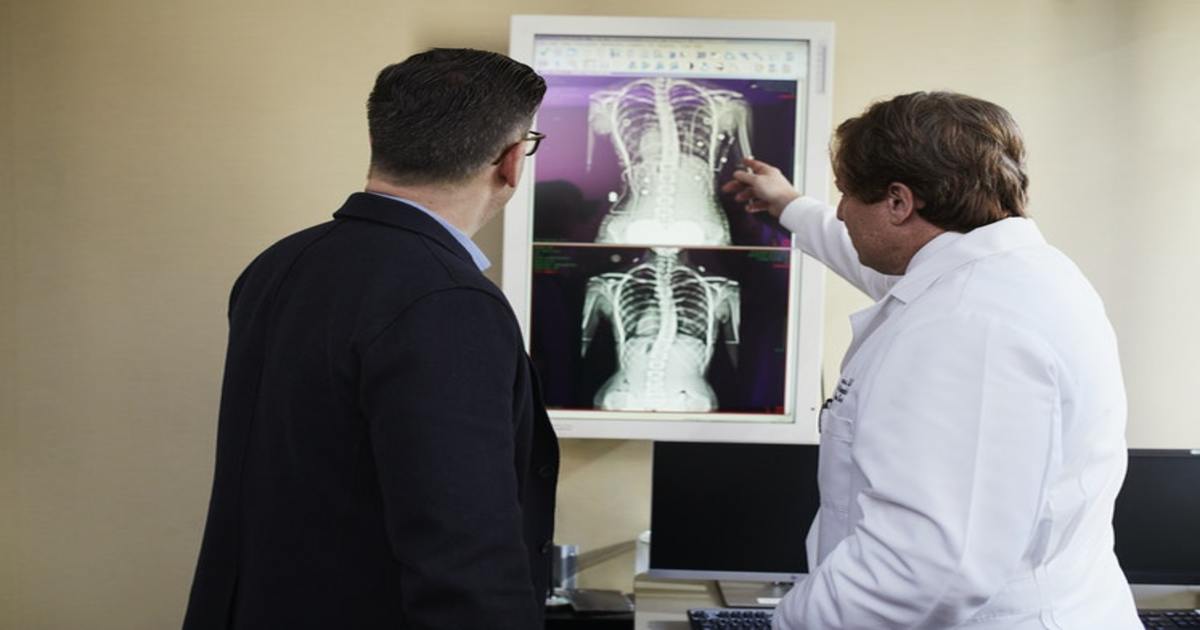
Health Technology, Digital Healthcare
Article | September 7, 2023
The healthcare industry is experiencing rapid shifts. Some of this is due to the current pandemic, but much of this evolution was happening even before the COVID-19 outbreak. Understanding and embracing the introduction of new technology into the market will be important for healthcare professionals and patients alike. Here are some of the trends worth keeping tabs on:
Read More

Health Technology, Digital Healthcare
Article | August 21, 2023
Throughout my professional carrier, I iused to visit many companies involved in drug discoveries and had seen the challenges they go through. Some are pleasant as the investigational molecules were moving forward in value chain whereas few faced bottlenecks at the end. The association with Pharma industry over the years had taught me about many new ideas and allowed me to see that how innovative ideas are impacting our social and scientific world to a great extent. The changes we see today, are the results of ideas came from various quarters globally and I feel digital innovation had shaped today’s world differently. The impact of digital platform in today’s Pharma world is a “Game-Changer".
Innovation is a continuous process which simplifies challenges into reality and plays a very important role in our society. Centuries ago, scientists used to spend years in laboratories to understand material science. The chemical science evolved around discovering elements, synthesis of compounds or even isolating products from natural resources. Today’s world is highly indebted to those discoveries and efforts and modern science has gradually moved towards digital platform. Last few decades, innovations based on new technology platforms has made huge impact in scientific discoveries and few such ideas and action I feel has brought significant changes. Our lifestyle and social environment have witnessed deep impact due to such innovation. The chemical science is evolved not around only chemists today but have huge influence of mathematicians and technologists for faster development.
Advancement of digital science, new algorithms to solve the problems has modified the way of drug discovery to a great extent. In the recent past, we were heavily depended on big machines, but innovation has brought the whole items in a small packet now. The technology platform is modified, speed has increased in identifying new drugs with artificial intelligence (AI) and machine learning is accelerating the drug discovery and development processes. Today’s Pharma industries for commercial supplies are now depended on automation, optimization of the manufacturing processes, as well as designing effective marketing and post-launch strategies. The process is aimed to have better control on the operation, improving safety and better predictability of quality. For conducting clinical trials, identifying patient’s profile, an eligibility criteria is crucial which has been made by the processes being faster and cost effective by introducing Artificial Intelligence (AI).
Earlier when focus was to identify the origin of life, finding new elements, compounds or building blocks, today’s world is heavily dependent on data or ‘Big Data’. The amount of information available throughout drug discovery and development process, analyzing, interpreting, and predicting right candidate require high-performance systems to analyze data properly and derive value from it. There is advancement of analytical techniques, which provides more accurate information about the clinical trial reports and the data across patient pool, zeroing down towards right candidate is a real challenge and there are several AI enabled tools available where the processing time is reduced significantly which might have taken several years. The exciting part is that innovation is not only limited to laboratory work but works in coordination of mathematical interpretations, data analysis and provide significant clues to develop new molecules and even provide approach towards therapeutic categories. Currently available advanced technologies enhance drug development process, making it less time-consuming and cost-effective process where AI can recognize hit and lead compounds, and provide a quicker validation of the drug target and optimization of the drug structure design. Data scientists play a very significant role in all these activities.
Innovation focusing personalized medicine is now a reality and companies involved in such basic research have made breakthrough to understand how the human body responds to drug. Software solution is also available for simulating effects of drugs in patient body based on individual characteristics, scientific data for real time prediction of efficacy and drug interaction on individual. These predictive models are shortening drug discovery pathways to a great extent. Small molecule drugs or even large molecules development are heavily depended today on such modelling and predictive approach. The aim to reduce cost of drug development, shortening discovery path, focus on clinical trial mechanism is more productive with a higher success rate. During the pandemic period, in a shortest possible manner, several companies started working to develop new drugs or vaccines using drug-specific exposure models for drugs under investigation for the treatment of Covid-19.
Similarly, discovery platform is also working on cutting edge technology ‘Organ-on-a-chip’ that can emulate the physiological environment and functionality of human organs on a chip for disease modeling, mimicking the impact and could be a game changer in future. I will be happy to see when technology platform can accurately predict human mind and with the help of AI, can find a probable solution to avoid any such complex conflicts. It would be interesting to see that AI is analyzing and predicting the chemical change in the bodies impacting human mind and analysisng it quickly to predict psychological behavior of the patient and guide physician for right therapy. This may lead to predicting problems one may face in old ages where the decays may be prevented at early stage. This is a challenge but understanding and predicting psychological behavior may improve patients’ life. Depression and its remedy may be based on understanding changes, patterns of physicochemical behavior and its impact during mood swing and predicting such things in advance by using the advanced AI tools could be a game changer.
Another path breaking development where technology involving both engineers and scientists to help drug design to obtain maximal therapeutic benefits for patients including designing drug delivery systems and biomedical devices is 3D-printing technology. This involves high end computer simulations making analysis faster and predictive than before. Influence of 3D printing in designing variety of dosage forms has simplified its preparation. Though further study is under progress but the technology implementation at late has reduced cost of drug development to a significant extent and will add value in future drug development. It is interesting to see how this 3D printing technology works on human brain mapping and predicting a right path for treatment for betterment of large patient pool. Today with advanced technology, we are now more dependent on machines, limited close interaction with our near and dear ones, but created more friends on social platform. Though life looks easy, but over dependent on machines is creating another complex environment and this growing complexity may change the disease pattern. It will be interesting to see that how these technology platforms improve further to ease out such complexities for a healthy future.
Read More

Health Technology, Digital Healthcare
Article | July 14, 2023
Explore the evolution of healthcare by diving deep into these EHR trends, as they pave the way for the future of EHR. Embrace cutting-edge solutions to enhance patient care and optimize operations.
1. Introduction
2. Significance of EHR Trends
3. Top 10 EHR Trends Shaping the Healthcare Industry
3.1 EHR Interoperability
3.2 Patient-reported Outcome
3.3 Patient Portals
3.4 Generative AI
3.5 Cloud-based EHR
3.6 Voice-enabled EHRs
3.7 Predictive Analytics
3.8 Robotic Process Automation
3.9 Telehealth-EHR Integration
3.10 Blockchain for EHR Data Integrity
4. Future Scope
1. Introduction
Electronic health records (EHRs) have transformed the medical industry by revolutionizing how medical information is recorded, accessed, and utilized. This article focuses on the EHR trends and innovations that have reshaped the healthcare field, paving the way for a more efficient and patient-centric future.From enhanced interoperability to cutting-edge technologies, professionals can unravel the key trends propelling future of EHR toward a new era of healthcare delivery.
2. Significance of EHR Trends
The importance of EHR software technology trends is highlighted by their transformative influence on the healthcare sector. This transformation was further expedited by the impact of the COVID-19 pandemic, which played a critical role in the increased adoption of telehealth services. As the pandemic necessitated alternatives to in-person visits, the demand for efficient and remote medical services surged, propelling telehealth to the forefront. Yet, looking beyond pandemic responses, the ongoing adoption of EHR trends in healthcare can significantly reshape how healthcare functions. Embracing these EHR trends enhances efficiency, facilitates personalized care, improves data exchange, drives data-driven insights, and empowers patient engagement. Irrespective of global events, it remains essential for healthcare facilities to stay abreast of these trends to remain adaptable and deliver optimized care, ultimately benefiting both providers and patients.
3. Top 10 EHR Trends Shaping the Healthcare Industry
Recognizing significant industry trends becomes crucial in a field that is constantly subject to technological advancement and global change. From adopting advanced technologies to prioritizing sustainability and customer-centric approaches, these EHR trends hold the power to bring about significant transformations across the healthcare sector.
3.1 EHR Interoperability
EMRs face a notable limitation in their ability to integrate with other systems, whereas EHRs offer robust interoperability, enabling seamless data exchange among healthcare facilities. As the demand for interoperability grows, the distinction between EMRs and EHRs becomes increasingly blurred, with vendors referring to products as EMRs that closely resemble what was initially known as EHRs. In response to this trend, developers and IT specialists continually update EHR systems to comply with interoperability policies, making EHRs more appealing for organizations seeking comprehensive and connected healthcare records.
3.2 Patient-reported Outcome
Patient-reported outcome or PRO EHR integration involves incorporating patient-reported outcome measures into electronic health record systems. PROs gather information directly from patient records about their health status, symptoms, and quality of life. These insights provide valuable subjective data for healthcare providers. For orthopedic patients at the clinic, completing surveys on their smartphones via a mobile link is easy. Clinicians can access patient responses during or after appointments to offer tailored care recommendations based on survey readings. Access to patient-reported outcome data empowers clinicians to deliver patient-centered care, fostering greater patient involvement in their treatment journey.
3.3 Patient Portals
Patient portals in EHRs are pivotal in modern healthcare practices as the industry embraces digital transformation. Patient portals within EHR systems are crucial to empowering individuals and facilitating communication between patients and healthcare professionals. These portals enable patients to access their personal health information securely. Patients can schedule appointments, ask questions, and even have virtual consultations, making healthcare more accessible and patient-centered. With improved communication and engagement, patient portals bridge the gap between individuals and healthcare professionals.
3.4 Generative AI
Integrating generative AI tools with Electronic Health Record systems holds immense promise for advancing healthcare industry. Generative AI can significantly enhance EHR software precision and overall technology, resulting in streamlined daily workflows and enabling healthcare providers to prioritize patient care. By utilizing patterns and structures from existing data to create new content resembling the training data, generative AI brings valuable improvements to EHR systems. These benefits include efficiently filling in missing data, enhancing clinical decision support, automating documentation and coding processes, and ensuring billing accuracy, thereby alleviating the burden on healthcare providers.
3.5 Cloud-based EHR
Cloud computing is gaining traction as medical organizations explore the benefits of outsourcing administrative and clinical services, including medical billing, reporting, lab integration, and more. With the increasing adoption of EHR systems, the advantages of easy access to patient data have become crucial. As the patient population continues to grow, the complexity of data rises, demanding solutions that ensure secure storage and accessibility. Embracing cloud-based infrastructure becomes imperative in this scenario, granting healthcare professionals the flexibility to access data using tablets or smartphones safely. This integration empowers clinicians to enhance their productivity in the clinical environment, laying the groundwork for long-term success by offering mobility solutions that cater to evolving healthcare demands.
3.6 Voice-enabled EHRs
Integrating voice recognition technology with EHR systems is a significant advancement for clinicians. By allowing hands-free input of information and patient data, voice recognition technology reduces inaccuracies and speeds up information recording. Additionally, with the support of AI, EHRs equipped with voice recognition can assist doctors in recognizing historical patient trends and making accurate diagnoses. As companies strive to incorporate AI into EHRs through voice-enabled technology, physicians can effortlessly access patient data and inquire about specific health parameters, such as the last recorded iron levels from a blood test. This streamlined approach improves efficiency and enhances the overall healthcare experience and decision-making process.
3.7 Predictive Analytics
Predictive analytics applications have become a significant driving force within the healthcare industry, yielding profound impacts on diverse areas, including cancer treatments and emergency staffing optimization. As the field continues to evolve, the adoption of predictive analytics technology is expected to expand further. Specialized healthcare app development services utilize AI-powered analytic methods, such as statistics, data mining, and modeling, in conjunction with AI capabilities to offer clinical outcome predictions based on real-time device data and electronic health records. This integration aims to elevate the patient experience and improve care delivery, equipping healthcare professionals with valuable insights to make more informed and proactive care decisions.
3.8 Robotic Process Automation
Robotic Process Automation (RPA) is driving the expansion of the automated data capture market for electronic health records worldwide, owing to its ability to enhance workflows and ensure increased accuracy. By automating data capture through robot-based processes, RPA eliminates the need for manual data entry, leading to improved precision. In the healthcare industry, RPA serves as an effective technique to address EHR flaws without requiring a complete system redesign, permitting the utilization of digital labor to preserve efficient processes while resolving underlying issues. By employing system algorithms and programs, RPAs efficiently automate tasks typically carried out by human resources, accelerating the digitization of medical facilities and promptly addressing imperfections.
3.9 Telehealth-EHR Integration
Integrating EHR systems with telehealth platforms revolutionizes healthcare by facilitating remote care and streamlining clinical workflows. This alliance will enable medical organizations to deliver high-quality patient care from a distance while ensuring the swift and secure transfer of patient information between systems and interfaces. The combined power of telehealth and EMR systems enhances virtual care activities, automates data entries, and synchronizes insurance information in a single window, thus optimizing efficiency and productivity for healthcare providers and their staff. Moreover, this integration strengthens patient-physician engagement and fosters seamless collaboration among healthcare teams.
3.10 Blockchain for EHR Data Integrity
While blockchain technology gained prominence through its association with cryptocurrency, its application in healthcare is steadily gaining momentum. By utilizing cryptography, blockchain ensures the utmost security and integrity of EHR data, limiting access to authorized individuals only. In healthcare, blockchain brings value, from validating clinical trials and verifying claim results to monitoring medicine distribution, authenticating prescriptions, and combating insurance fraud. Additionally, smart contracts leverage blockchain to automate actions based on predetermined outcomes, reducing the need for extensive human involvement. Although the adoption of blockchain in healthcare technology is still in its early stages, several EHR systems have already incorporated it to enhance security, scalability, and confidentiality measures.
4. Future Scope
The convergence of IoT devices and big data technology is set to revolutionize the healthcare experience, offering unprecedented digitization and patient engagement. The disruptions brought on by the COVID-19 pandemic have underscored the need for healthcare institutions to adapt and embrace technological advancements. Careful selection of the right EHR system is crucial for healthcare organizations, and a structured approach that involves key stakeholders, requirements definition, vendor evaluation, and implementation planning is essential for successful EHR implementations. The ultimate goal remains to enhance patient care, streamline workflows, and achieve operational efficiencies. While EHRs have already made significant strides in the industry, the future of electronic health records holds even more excellent benefits and technological impact, with healthcare mobile app developers playing a vital role in the value-based healthcare model and preparing for EHR optimization.
Read More

Health Technology
Article | June 9, 2022
Healthcare leaders are embracing the benefits of the cloud and software as a service (SaaS) after the pandemic challenged them to adapt and innovate like never before. 66% of them expect to move their technology infrastructures to the cloud this year – a number that is set to rise to 96% by 2024 [1]. Yet moving to the cloud is more than just a technology transformation. It’s an organizational transformation. Through cloud-based platforms and solutions, healthcare systems can begin to unlock clinical and operational insights at scale while speeding up innovation cycles for continuous value delivery.
Integrating data across the care continuum
In many ways, COVID-19 catapulted healthcare into the future. The pandemic created a new urgency for healthcare leaders to expand their virtual care offerings as a way of connecting with patients beyond the walls of the hospital. At the same time, they wanted the flexibility to scale up or down without large upfront capital expenditures. Effective crisis management also required the rapid exchange of patient information across systems and care settings. Thanks to the flexibility of pay-as-you-go cloud-based services and solutions, healthcare providers were able to quickly scale up digital health technologies to meet new demands. As a result, the acceptance of cloud has increased remarkably [2].
Keeping patient data secure and compliant
As healthcare leaders embark on this journey to the cloud, data protection is a critical consideration. Data processing in healthcare must comply with rigorous standards, whether it is HIPAA in the US or GDPR in the EU. Unfortunately, healthcare organizations also remain a top target for data breaches, calling for additional data security protection measures [3].
While the need for data security and regulatory compliance has historically motivated healthcare organizations to keep data on premises, today there is a growing awareness that moving to the cloud can in fact be the better road to travel. In fact, 60% of healthcare leaders now cite security as one of the top benefits of the cloud [4]. When healthcare organizations rely on their own data centers, they are responsible for security from end to end, which can become prohibitively complex and time-consuming as IT infrastructures expand over time. Cloud-based services and solutions can reduce dependency on local hardware to store sensitive data while automated software updates keep systems current.
Turning data into insights at scale at the point of care
Working from these foundations, the next big opportunity in healthcare is to capture the insights in the data that we are beginning to connect and integrate. This is where the cloud is also turning into a vital enabler, with its powerful computing resources and advanced machine learning capabilities, offered as microservices. These microservices provide the building blocks to develop new digital solutions that, once validated and approved, can be deployed at scale to help improve clinical outcomes and operational efficiency.
Enabling rapid experimentation and continuous value delivery
Embracing the cloud also changes the very nature of innovation in healthcare.
Healthcare-compliant cloud platforms offer a flexible foundation for rapid development and testing of digital applications. Cross-functional teams working in short and agile cycles can put new digital applications into the hands of physicians or patients more quickly, and then add new or improved features and functionalities as they gather additional user feedback. That means healthcare organizations get to innovate faster. And in smaller, more digestible increments.
Moving to the cloud is not all or nothing
Of course, none of this is to suggest that moving to the cloud is like switching a button. It’s a complex and multi-year journey for most of our customers. And it’s quite a journey for Philips, too. Any organization that has accumulated a large number of legacy systems and infrastructures over the years will have to manage a hybrid architecture during their journey to the cloud [5].
Read More